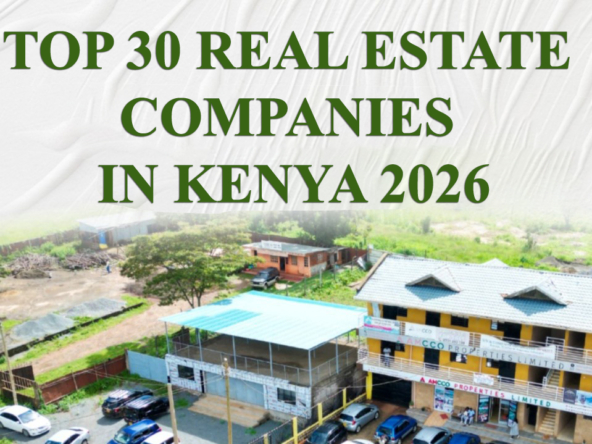Uganda’s vibrant and expansive diaspora—comprising an estimated 1.5 million citizens residing across the globe—has emerged as an undeniable powerhouse in the nation’s burgeoning real estate sector. In 2023 alone, these Ugandans abroad remitted a staggering $1.2 billion back home, a significant portion of which, approximately 25%, was strategically channeled into property investments. This substantial capital influx has not only revitalized urban and peri-urban markets but has also created a dynamic synergy, offering both compelling financial returns for astute investors and invaluable development opportunities for local economies. The phenomenon of Uganda diaspora property investment is transforming skylines and fostering economic resilience, making it a critical area for both economic analysis and strategic engagement.
Strategic Investment Patterns & Empowering Channels
The methods by which the diaspora engages with Uganda diaspora property investment are evolving, reflecting a growing sophistication and a desire to maximize impact while mitigating risks.
Direct Land Purchases: The Tangible Asset Appeal
For many in the diaspora, the appeal of direct land purchases remains incredibly strong. Freehold and leasehold estates in burgeoning areas such as Wakiso, Mukono, and various Kampala suburbs are experiencing prime activity. This trend is largely driven by significantly lower entry prices in these peri-urban zones, which are often 30–40% below comparable plots in the city center. Furthermore, these areas offer robust growth projections, promising substantial capital appreciation over time. The tangible nature of land ownership provides a sense of security and a lasting legacy, which resonates deeply with diaspora investors. The ability to acquire larger parcels of land for future development or agricultural ventures at more accessible price points makes direct land acquisition a cornerstone of Uganda diaspora property investment.
Digital Crowdfunding: Democratizing Access to Development
A more recent and innovative approach transforming Uganda diaspora property investment is the rise of digital crowdfunding platforms. Tools like Ulddio are facilitating pooled investments, allowing multiple diaspora members to contribute smaller sums towards larger, more ambitious housing projects. This democratizes access to high-value real estate opportunities that might otherwise be out of reach for individual investors. Beyond accessibility, crowdfunding reduces transaction friction by centralizing the investment process and leveraging technology for transparency and oversight. This model fosters a sense of collective ownership and shared risk, encouraging more widespread participation from the diaspora and channeling significant capital into impactful developments that contribute to addressing Uganda’s housing needs.
Joint Ventures: Leveraging Local Expertise, Mitigating Risks
Another increasingly popular avenue for Uganda diaspora property investment is the formation of joint ventures between diaspora investors and local developers. These collaborations are crucial for bridging the knowledge gap, as local developers possess invaluable on-the-ground expertise, including intimate knowledge of local regulations, market dynamics, and construction processes. By partnering, diaspora investors can significantly mitigate common regulatory and administrative risks, such as navigating complex land titles or dealing with unforeseen construction challenges. This synergistic approach allows diaspora capital to be effectively deployed, benefiting from local insights and networks, leading to more efficient and successful project execution and ultimately safeguarding investments.
Navigating the Landscape: Persistent Challenges & Mitigating Risks
Despite the immense potential, Uganda diaspora property investment is not without its hurdles. Understanding and proactively addressing these challenges is essential for a secure and profitable venture.
Regulatory Complexity: A Maze of Bureaucracy
One of the most significant challenges facing Uganda diaspora property investment is the inherent regulatory complexity. Navigating multiple government agencies—including the Ministry of Lands, the Land Registry, and various district offices—often results in highly variable title processing timelines, ranging from 3 to a frustrating 12 months. Compounding this is the issue of inconsistent documentation requirements across different offices, leading to delays and confusion. This bureaucratic maze can be particularly daunting for investors residing abroad who cannot be physically present to oversee every step. It underscores the critical need for robust legal representation and clear, standardized processes to streamline property transactions for the diaspora.
Fraud & Ghost Projects: The Trust Deficit
The pervasive issue of fraud remains a significant risk within the Uganda diaspora property investment landscape. The incomplete nature of centralized project registries continues to enable sophisticated “ghost estate” scams, where fraudsters promote and sell non-existent properties. These illicit schemes cost diaspora investors an estimated UGX 15 billion in 2023 alone, severely eroding trust and deterring potential investments. The lack of a single, verifiable database for all legitimate projects makes it challenging for remote investors to authenticate properties, emphasizing the urgent need for comprehensive digital registries and more robust anti-fraud mechanisms.
Currency Volatility: Eroding Returns
The fluctuating value of the Ugandan Shilling (UGX) poses another substantial risk to Uganda diaspora property investment. The UGX experienced an approximately 5% depreciation against the US Dollar in 2024, which can significantly erode rental yields and overall returns when repatriating funds. Furthermore, cumbersome repatriation protocols can slow down the process of transferring rental income back to investors abroad, impacting liquidity and perceived profitability. This currency volatility necessitates careful financial planning, potentially including hedging strategies or choosing investments that generate returns in more stable currencies, to safeguard the real value of diaspora investments.
Empowering Solutions: Policy & Platform Innovations
In response to these challenges, both governmental bodies and private sector innovators are developing crucial policy and platform responses designed to streamline and secure Uganda diaspora property investment.
Diaspora Facilitation Desk: A Single Window for Support
A significant stride in simplifying the investment process for Ugandans abroad is the establishment of the Diaspora Facilitation Desk in January 2025. This vital initiative offers a single-window service in Kampala, consolidating various necessary functions. It provides critical support for title verification, ensuring the authenticity of property documents, offers comprehensive tax guidance tailored to diaspora investors, and provides reliable bank referrals to facilitate financial transactions. By centralizing these services, the Desk aims to drastically reduce the administrative burden and complexity previously faced by diaspora investors, making Uganda diaspora property investment more accessible and less daunting.
Stamp Duty Amendments: Incentivizing Investment
Policy adjustments are also playing a key role in attracting and retaining Uganda diaspora property investment. The 2024 Stamp Duty Act introduced favorable amendments, significantly reducing rates for diaspora property purchases. This crucial change shifted from a flat 1% to a tiered structure, specifically designed to favor lower-valued transactions. This means that smaller-scale diaspora investors, often purchasing land or modest homes, now face a reduced tax burden, making property acquisition more affordable and attractive. Such fiscal incentives directly stimulate demand and demonstrate a governmental commitment to supporting diaspora engagement in the real estate sector.
Verified Listing Platforms: Building Digital Trust
The private sector is stepping up with technological solutions to combat fraud and build trust. Platforms like Lamudi and Zebra Homes launched dedicated diaspora-specific portals in 2024. These platforms are revolutionary because they feature meticulously vetted listings, significantly reducing the risk of encountering fraudulent or “ghost” properties. Crucially, many of these platforms now integrate third-party escrow services, ensuring that funds are held securely until property titles are legally transferred. By enhancing trust through verified listings and secure transaction mechanisms, these digital platforms are becoming indispensable tools for fostering confidence and facilitating legitimate Uganda diaspora property investment.
Critical Investor Implications & Strategic Considerations
For any diaspora member considering Uganda diaspora property investment, adopting a strategic mindset that integrates both financial acumen and an understanding of local market mechanisms is paramount for success.
Standardized Packages: The Turnkey Advantage
Developers keen on capturing the lucrative diaspora demand should pivot towards offering standardized, comprehensive packages. These “turnkey” investment solutions bundle essential services such as legal counsel, financing options, and reliable property management. For diaspora investors, who often lack the time or physical presence to oversee individual aspects of a property acquisition and maintenance, such bundled services offer unparalleled convenience and peace of mind. Providing a seamless, end-to-end investment experience, from initial inquiry to ongoing rental income, is a powerful differentiator that can significantly attract and retain Uganda diaspora property investment.
Trust Mechanisms: Blockchain & Escrow as Differentiators
Building trust is paramount in the Uganda diaspora property investment landscape, particularly given past fraud concerns. Incorporating cutting-edge trust mechanisms such as blockchain-backed title proofs can profoundly differentiate property offerings. Blockchain technology provides an immutable and verifiable record of property ownership, drastically reducing the risk of title duplication. Furthermore, consistently utilizing third-party escrow functions for all financial transactions ensures security and transparency. By proactively adopting these advanced trust mechanisms, developers and agents can dramatically reduce perceived risk and instill greater confidence in diaspora buyers, positioning their offerings as secure and reliable.
Management Solutions: Ensuring Passive Income
For diaspora investors, the desire for passive income is often a primary driver. Therefore, creating robust local property management arms is a critical strategic implication. These dedicated management solutions ensure consistent rental income flows by handling tenant acquisition, rent collection, and property maintenance on behalf of the absentee owner. Effective property management preserves the asset’s value, minimizes vacancies, and provides regular financial reporting, addressing the diaspora’s desire for hassle-free investments. This comprehensive approach transforms Uganda diaspora property investment from a potentially burdensome endeavor into a truly passive and profitable income stream.
Conclusion: A Golden Era for Uganda’s Diaspora Property Market
The burgeoning role of Uganda’s diaspora in the nation’s real estate sector signifies a transformative period. With significant capital inflows, evolving investment patterns, and a growing array of supportive policies and technological platforms, Uganda diaspora property investment is poised for continued, robust growth. While challenges like regulatory complexity, fraud, and currency volatility persist, concerted efforts from both government and the private sector are actively mitigating these risks. By embracing innovative solutions, promoting transparency, and focusing on investor support, Uganda is solidifying its position as a compelling and secure destination for its citizens abroad to invest in property, ultimately contributing to both individual prosperity and national development.




